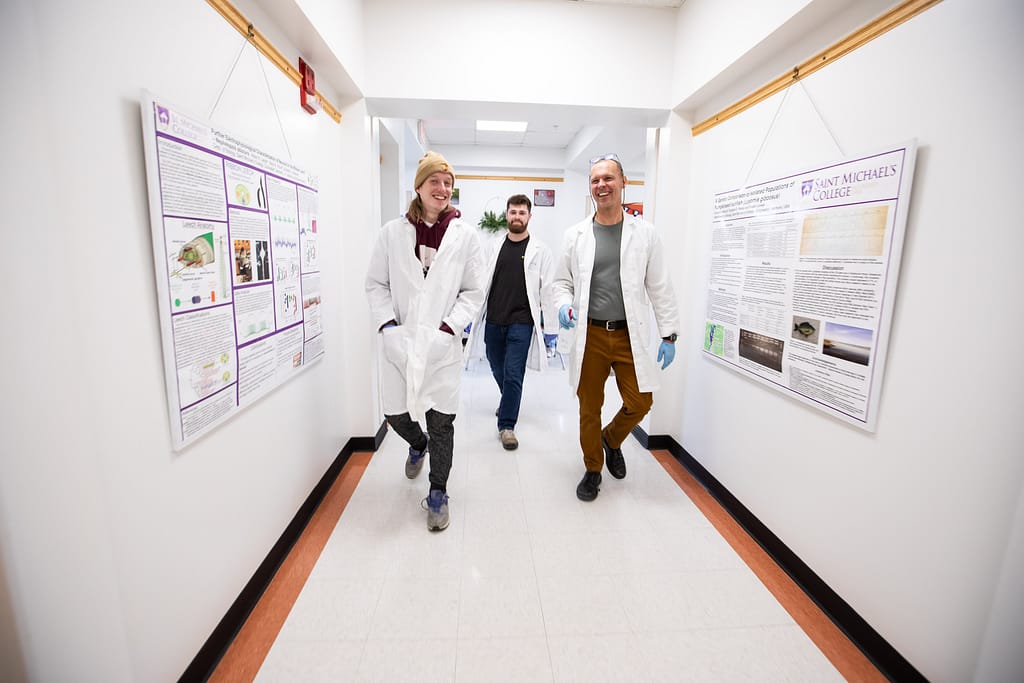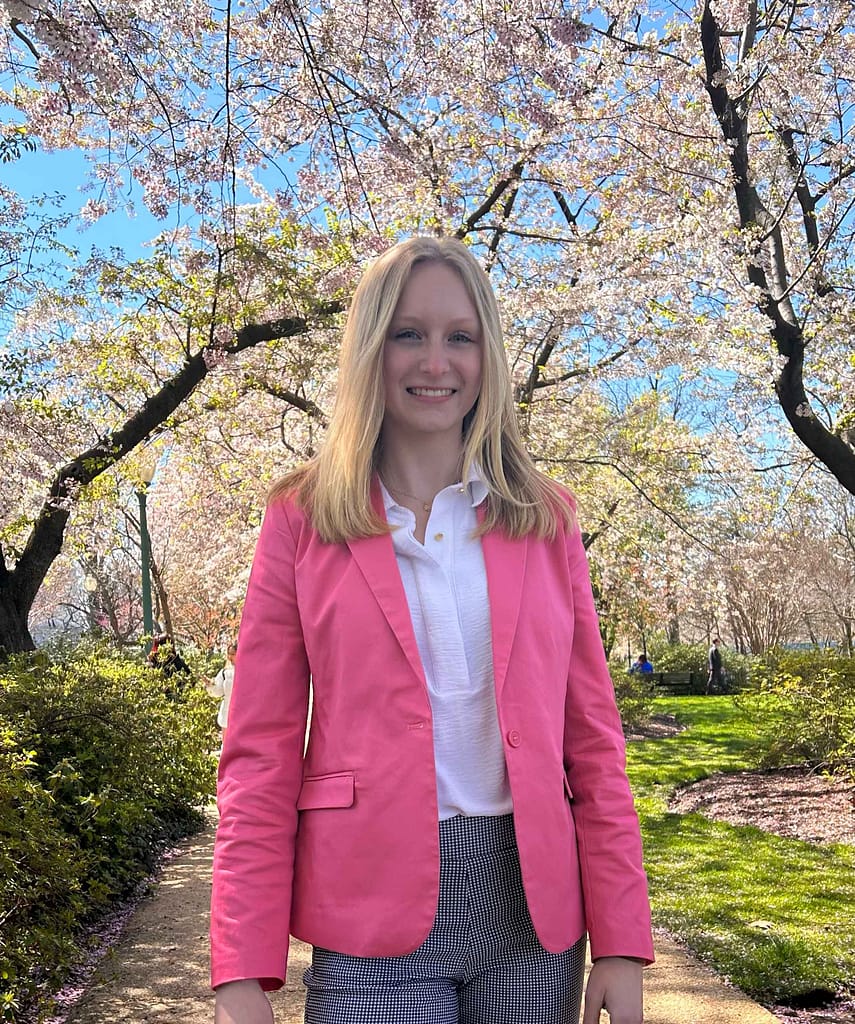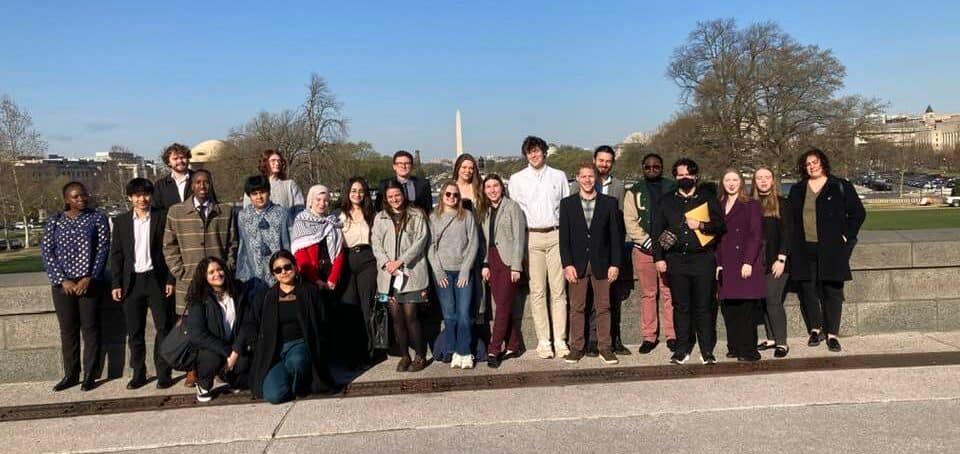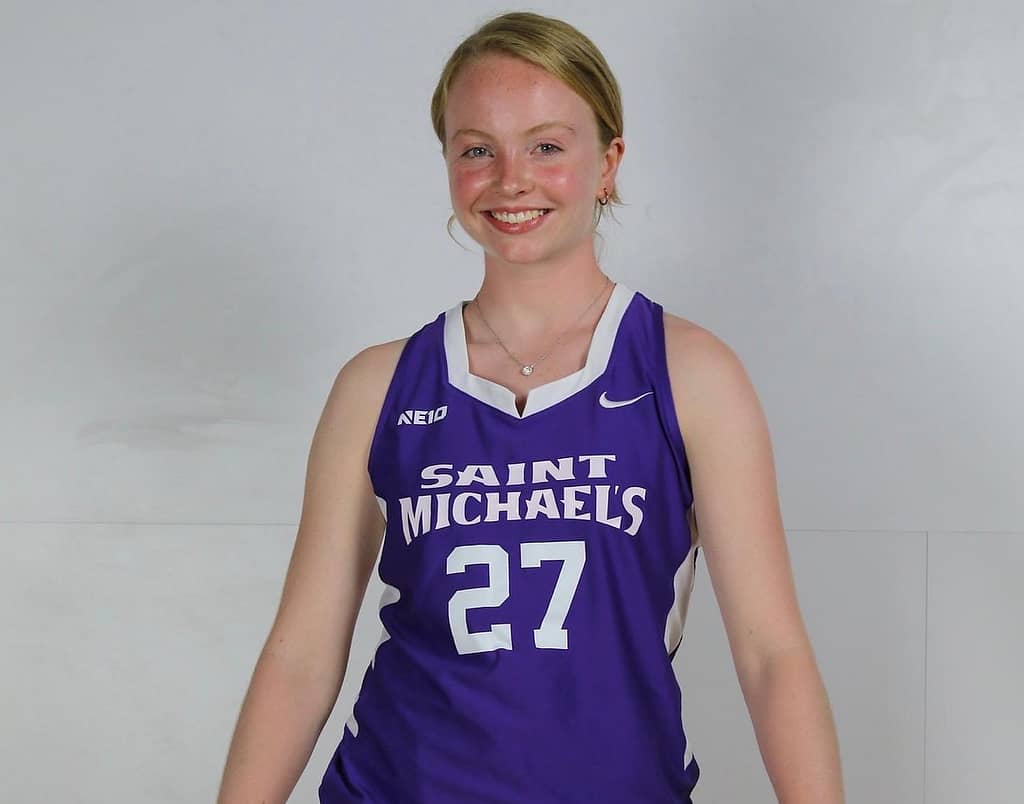New community ‘network’ targets pandemic challenges
Students, faculty and staff to join forces for projects, special classes and mutual support through COVID Action Network -- 'SMC-CAN!'
Saint Michael’s College students this fall can join the COVID Action Network (SMC CAN!) to address and learn more about pandemic-related challenges alongside the faculty and staff collaborators who created the innovative new program this summer.
The Network aims to tackle the unprecedented health, educational, social, and logistical challenges brought about by the COVID-19 pandemic, including helping to contain its spread. Students in the program can participate by taking courses containing relevant community-engaged learning projects, work with campus organizations helping with COVID-related endeavors, or take a two-credit COVID Action Network practicum course that will be offered.
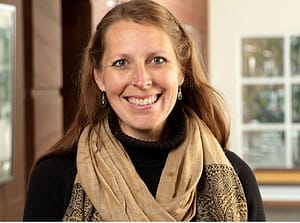
Professor Patricia Siplon is director of the new COVID Action Network (SMC CAN!) at Saint Michael’s College.
Directing the initiative has been Professor Trish Siplon of the political science faculty (coordinator). Mary Masson, director of the Bergeron Wellness Center, originally convened the new group. The Network’s Advisory Committee includes Mike Bosia (political science), Heidi Brodtman (Wellness Center administrative assistant), Kathy Butts, (Counseling Center), Allison Cleary (journalism), Christopher Desjardins (math/statistics faculty), Mark Lubkowitz (biology), Nicole Podnecky (biology faculty), Candas Pinar (sociology/public health) and Lara Scott (MOVE director, Edmundite Campus Ministry), Jeff Vincent (assistant dean and director of Residence Life, and Renee Breault (head athletic trainer and liaison to Athletics).
“The COVID-19 pandemic has radically restricted the operation of many, if not most of our institutions across the country, and Saint Michael’s College is no exception,” Siplon said. Yet, while facing unprecedented challenges, she said, “These exceptional times represent an amazing opportunity to mobilize important campus resources, including academic departments, campus ministry, the Wellness Center and student organizations.”
“Our plan is to leverage these resources to both help fulfill critical public health functions to contain the spread of COVID-19 on our campus and provide a unique, practical and timely set of experiential educational opportunities to our students,” Siplon said, adding that the group’s work by its nature will have to be “comprehensive, flexible and fast-moving.”
She said an important consideration for the COVID Action Network will be duly taking into account the ways structural racism in society has caused students to experience the pandemic differently — hence, the re-thinking of the conduct and meeting of classes, life in residence halls dining experiences, extracurricular activities and guidelines on entering and leaving campus “must happen rapidly and in a climate of constantly evolving information,” she said, but also with sensitivity that “some students and staff and their families are more likely to have experienced severe illness and death, as well as the economic shocks of unemployment and loss of income,” largely because of structural racism and inequality in society. “Campuses must be prepared to support students who have faced or may face these additional difficult impacts,” she said.
Social, emotional and spiritual support of those impacted for COVID, perhaps using a buddy system for those cut off by quarantine, for instance, will be one of three chief area of activity for Network activists, the others being transmission prevention, and then policy development/implementation, Siplon said.
A dedicated special course
In mid-August, the College’s Curriculum & Education Policy Committee (CEPC) approved the “SMC CAN!” organizing group’s proposal to create a two-credit COVID Action Team course for this fall. Wrote Psychology Professor Rene Carrico on behalf of the CEPC, “Members of the committee were very supportive of the course, and the unique and timely learning opportunity it offers our students. Kudos to you for putting this together in such short order.”
The course, to be taught by Siplon and Cleary, is for students who want to make the Network a central element of their fall campus experience. They will learn practical information about the pandemic, ways its transmission maybe be prevented, and its impacts managed in an institutional setting. All in the class will serve actively in Network activities focused on community education, prevention peer support and policy. Students from the class wills serve as leaders in the co-curricular efforts. .
The co-curricular groups invited to join the Network’s outreach so far are MOVE, Residence Life, the Student Government Association, the Center for Multi-Cultural Affairs, the Adventure Sports Center, Fire and Rescue and Athletics, and so far, Athletics, Fire and Rescue, MOVE and Residence Life have responded to organizers that they would like to participate.
Beyond that dedicated two-credit course, some other Saint Michael’s courses — including but not limited to first-year and junior seminars — are designed to contain community-engaged learning elements. Faculty have suggested projects that can be incorporated.
“Although it is imperative that our work be done in accordance with the best scientific information and state of the art practices known, it is also essential that organizing, communication and action happen in a timely way to match the pace of this virus and its impacts, which move quickly,” Siplon said, encouraging interested students to contact her or advisory committee members as soon as possible to learn more.
